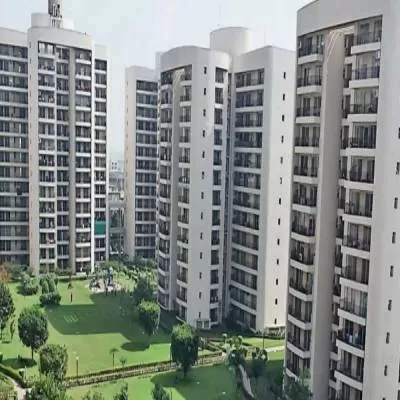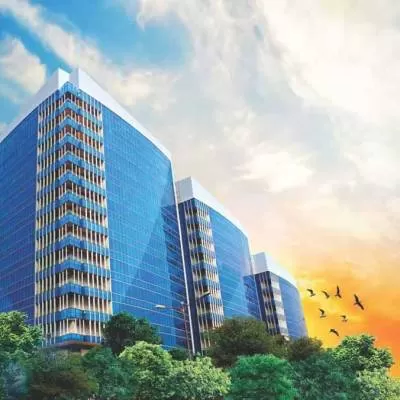- Home
- Real Estate
- Order in chaos
Order in chaos
The current FDI flow has only been a result of IT and ITeS and to a certain extent, hospitality, while the retail story has just begun. Further, the urban shift is continuing to create demand within cities depending upon the opportunities created by each state. Input costs have hit the ceiling and land prices are soaring. Anuj Puri, Chairman, Jones Lang LaSalle, shared these statistics: a dollar of investment in 2011 gave a $0.6 and $0.7 return on investment in the retail and commercial sectors, $1.3 for residential investment but a whopping $5 just for investments in land!
The National Association of Realtors put up a great convention recently with over 1,000 participants, which displayed the professionalism that realtors have embraced. They have turned tech-savvy, are looking at enhancing their research capabilities and are customer-centric instead of transaction-centric. The new DC rules, the levels of accountability being envisaged in the real estate bill, etc, all augur well for the growth of the sector.
RBI has clearly disappointed the industry with the status quo on interest rates. Just when it seemed that the government had been pushed to the wall and the PM called for a meeting on infrastructure delays, he shifted gears in favour of finding a President for the country, instead. Huge amounts are stuck with infrastructure projects, and developers are in both a liquidity squeeze and a debt trap. There should be a move to liberalise the caps on borrowing from overseas in rupee denominated loans, which will save us from a currency risk and yet offer us long term funds at low rates of interest. Indian companies raised over $17 billion for the fiscal year ended March 31, 2011, taking advantage of relatively low interest rates. Recently, the government said that it would liberalise external commercial borrowing norms to allow for a higher limit of $750 million under the automatic window and to allow borrowings in renminbi – the Chinese currency – besides refinancing the rupee debt through foreign borrowings. Policy makers have for long used the cap on annual borrowings – which is now $30 billion – and the price ceilings to contain debt at prudent levels.
RBI has played its cards and choked inflation at the cost of killing growth. I do not believe that the world is heading towards a recession. So, even though the commodity cycle seems to be taking a breather, Europe seems to be headed for the long haul, and China is said to have shrunk severely, the US seems to be gathering steam especially with the shale gas accretion, which is likely to be a game changer.
The results of FY 2012 have not been too bad with over 15 per cent top-line growth and around 10 per cent PAT growth, and companies are already calibrating their budgets for FY 2013. In fact, in our Cover Story that discovers and profiles India’s Most Admired Companies, 10 head honchos share their strategies for 2013.
It’s time to get your house in order.
For those who are waiting for property prices to recede, the horizon is hazy, for neither has the debt burden pressurised builders to ease prices nor has the slack in sale transactions. Further, of the total FDI of US$ 230 billion that India has received since 2000, real estate has received only US$ 10.8 billion. The rules for investing in Indian real estate have been eased in the previous years, and now the minimum size for housing estates built with foreign capital have been dropped from 100 acre (40 hectare) to 25 acre (10 hectare). Overseas firms can now put up commercial buildings as long as the projects surpass 50,000 sq m (538,200 sq ft) of floor space. Earlier this year, the Government had relaxed the single-brand retail norms from 51 per cent to 100 per cent, as only $44.45 million worth foreign investments were received by the sector, constituting barely 0.03 per cent of the total FDI inflows. Swedish furniture retailer IKEA announced plans to invest about €1.5 billion (Rs 10,500 crore) recently, which is likely to have a trickle-down effect on other single-brand retailers wishing to come to India.The current FDI flow has only been a result of IT and ITeS and to a certain extent, hospitality, while the retail story has just begun. Further, the urban shift is continuing to create demand within cities depending upon the opportunities created by each state. Input costs have hit the ceiling and land prices are soaring. Anuj Puri, Chairman, Jones Lang LaSalle, shared these statistics: a dollar of investment in 2011 gave a $0.6 and $0.7 return on investment in the retail and commercial sectors, $1.3 for residential investment but a whopping $5 just for investments in land!The National Association of Realtors put up a great convention recently with over 1,000 participants, which displayed the professionalism that realtors have embraced. They have turned tech-savvy, are looking at enhancing their research capabilities and are customer-centric instead of transaction-centric. The new DC rules, the levels of accountability being envisaged in the real estate bill, etc, all augur well for the growth of the sector.RBI has clearly disappointed the industry with the status quo on interest rates. Just when it seemed that the government had been pushed to the wall and the PM called for a meeting on infrastructure delays, he shifted gears in favour of finding a President for the country, instead. Huge amounts are stuck with infrastructure projects, and developers are in both a liquidity squeeze and a debt trap. There should be a move to liberalise the caps on borrowing from overseas in rupee denominated loans, which will save us from a currency risk and yet offer us long term funds at low rates of interest. Indian companies raised over $17 billion for the fiscal year ended March 31, 2011, taking advantage of relatively low interest rates. Recently, the government said that it would liberalise external commercial borrowing norms to allow for a higher limit of $750 million under the automatic window and to allow borrowings in renminbi – the Chinese currency – besides refinancing the rupee debt through foreign borrowings. Policy makers have for long used the cap on annual borrowings – which is now $30 billion – and the price ceilings to contain debt at prudent levels.RBI has played its cards and choked inflation at the cost of killing growth. I do not believe that the world is heading towards a recession. So, even though the commodity cycle seems to be taking a breather, Europe seems to be headed for the long haul, and China is said to have shrunk severely, the US seems to be gathering steam especially with the shale gas accretion, which is likely to be a game changer.The results of FY 2012 have not been too bad with over 15 per cent top-line growth and around 10 per cent PAT growth, and companies are already calibrating their budgets for FY 2013. In fact, in our Cover Story that discovers and profiles India’s Most Admired Companies, 10 head honchos share their strategies for 2013.It’s time to get your house in order.




















